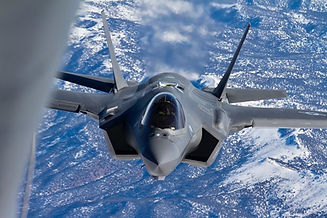CAREER OPTIONS
Your opportunities are endless! Joining the military is not a decision to take lightly, but it is one with incredible reward. Becoming an Air Force pilot can look different based on what your career goals are. Explore your options below to find out which career path best suits your dreams and lifestyle!



ACTIVE DUTY
Active Duty is most likely what you've always pictured when you thought about the Air Force. This lifestyle is very fast paced and always changing. Depending on which airframe you fly, on average you will move every 2-3 years. Your beginning years as an Active Duty pilot will be filled with flying, but as you progress, your flight hours will decrease and your responsibilities outside of the squadron will increase. Overseas assignments are very common and can be very exciting experiences. If you enjoy change and travel, active duty may be a great option for you. Scroll down to learn more about the pilot selection process.
AIR NATIONAL GUARD
Notorious for their long hair and relaxed standards, the Air National Guard has its differences from the rest of the force. Though this reputation may be true in some units, the performance and intensity of the guard is second to none. Contrary to popular belief, the Air National Guard is much more than a group of "weekend warriors." All guard units have full time positions and many support a national 24/7 alert mission. In the guard, you have the option to stay in the same unit your entire career while still supporting combat operations and flying some of the most advanced aircraft in the world. If community and stability is very important to you, the guard could be a great option.
AIR FORCE RESERVE
Air Force Reserves represent the sweet spot between Active Duty and the Air National Guard. Similar to the National Guard, you can stay at your unit for the duration of your career. Funding is the major difference between the Air National Guard and Air Force Reserves. The Air National Guard is funded by the state while the Air Force Reserves are funded by the federal government. What this means is the Air Force Reserves are the first to be called upon to augment the active duty force. In the squadron, there is a higher standard for military customs and courtesies than the National Guard, as many reservists transition straight from active duty.

ACTIVE DUTY
Pilot Selection Process
There are various routes you can take to become an active duty pilot. ROTC, OTS and USAFA are all options. Joining ROTC at the college you attend can put you on the path to becoming a pilot if you test well and perform physically. Have no fear, if you don't get a pilot slot right out of ROTC, you have a second chance. As a new officer in the Air Force, you can continue applying to the pilot selection board. OTS is Officer Training School and is an option for civilians with a Bachelor's Degree. If you have completed your Bachelor's Degree, you can apply to the selection board. Once you're selected, you will be sent to OTS and continue down the pilot training pipeline. USAFA is also an option to achieve your goal of becoming a pilot. Being admitted to the Air Force Academy is no easy task. Every academy grad is commissioned into the Air Force and similar to ROTC, your performance in the academy determines your chances of being awarded a pilot slot. In all active duty pilot training classes, you will be competing with your fellow classmates to get ranked. The higher your rank is, the more options you have when choosing the airframe you will eventually fly. Please give us a call if you have any unanswered questions!

AIR NATIONAL GUARD AND AIR RESERVE
Pilot Selection Process
Steps to becoming a pilot in the Air National Guard and Air Force Reserves are nearly identical. This process starts with making yourself a competitive applicant. To do this, you want to do well in college, build flight hours, build your resume and crush your AFOQT. Once you have made yourself competitive and gotten within a year of graduating college, you can start applying to units. This process is similar to any other job application. First, you have to decide what or where you want to fly. For example, you have the option to apply to only F-16 units or only units in Texas, regardless of the airframe. It is your choice if location or airframe is more important to you. Once you find the units you want to fly for, you will submit your cover letter, resume and any other requested documents from the unit you apply to. They will then let you know if you have been selected for an interview. If you are chosen to be that unit's next pilot, you'll be sent off to pilot training. One of the biggest benefits of the guard and reserve is that all throughout pilot training, you know what airframe you will end up flying and where you are going home. Please give us a call if you have any unanswered questions!
